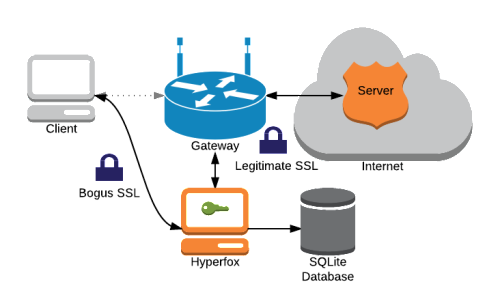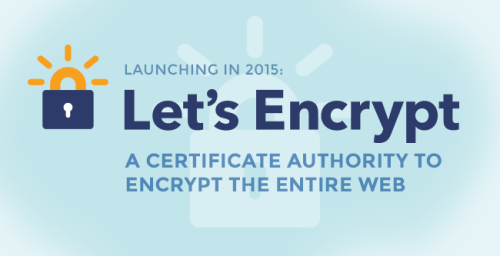Hyperfox – a security tool for proxying and recording HTTP and HTTPs
Tag: HTTP
Launching in 2015: Let’s Encrypt CA
Electronic Frontier Foundation reports some excellent news:
Today EFF is pleased to announce Let’s Encrypt, a new certificate authority (CA) initiative that we have put together with Mozilla, Cisco, Akamai, IdenTrust, and researchers at the University of Michigan that aims to clear the remaining roadblocks to transition the Web from HTTP to HTTPS.
More specifically:
With a launch scheduled for summer 2015, the Let’s Encrypt CA will automatically issue and manage free certificates for any website that needs them. Switching a webserver from HTTP to HTTPS with this CA will be as easy as issuing one command, or clicking one button.
HTTPS availability affects website’s Google ranking
Google has been pushing for wider HTTPS adoption for a while now – converting its own services, working on the SPDY/HTTP 2.0 protocols, etc. Now, it seems, they want other people to start adopting HTTPS too. And what’s better way than add it as a signal to Google Search rankings?
[…] over the past few months we’ve been running tests taking into account whether sites use secure, encrypted connections as a signal in our search ranking algorithms. We’ve seen positive results, so we’re starting to use HTTPS as a ranking signal. For now it’s only a very lightweight signal—affecting fewer than 1% of global queries, and carrying less weight than other signals such as high-quality content—while we give webmasters time to switch to HTTPS. But over time, we may decide to strengthen it, because we’d like to encourage all website owners to switch from HTTP to HTTPS to keep everyone safe on the web.
Nice! Especially for those selling SSL certificates…
Requests for PHP – never touch cURL again
Requests for PHP – never touch cURL again
HTTP/1.1 just got a major update
HTTP/1.1 just got a major update – somehow I missed this last month.
The IETF just published several new RFCs that update HTTP/1.1:
- RFC 7230: Message Syntax and Routing
- RFC 7231: Semantics and Content
- RFC 7232: Conditional Requests
- RFC 7233: Range Request
- RFC 7234: Caching
- RFC 7235: Authentication
- RFC 7236: Authentication Scheme Registrations
- RFC 7237: Method Registrations
- RFC 7238: the 308 status code
- RFC 7239: Forwarded HTTP extension
These documents make the original specification for HTTP/1.1 obsolete. As a HTTP geek, this is a big deal.
RFC 2616, which was written more than 15 years ago, was the specification everybody has implemented, and I suspect many of you occassionally have used as a reference.

